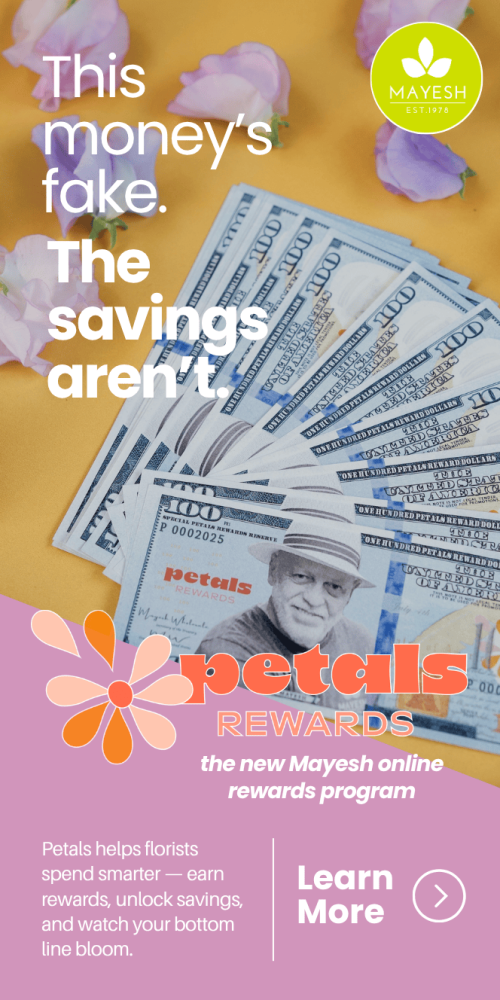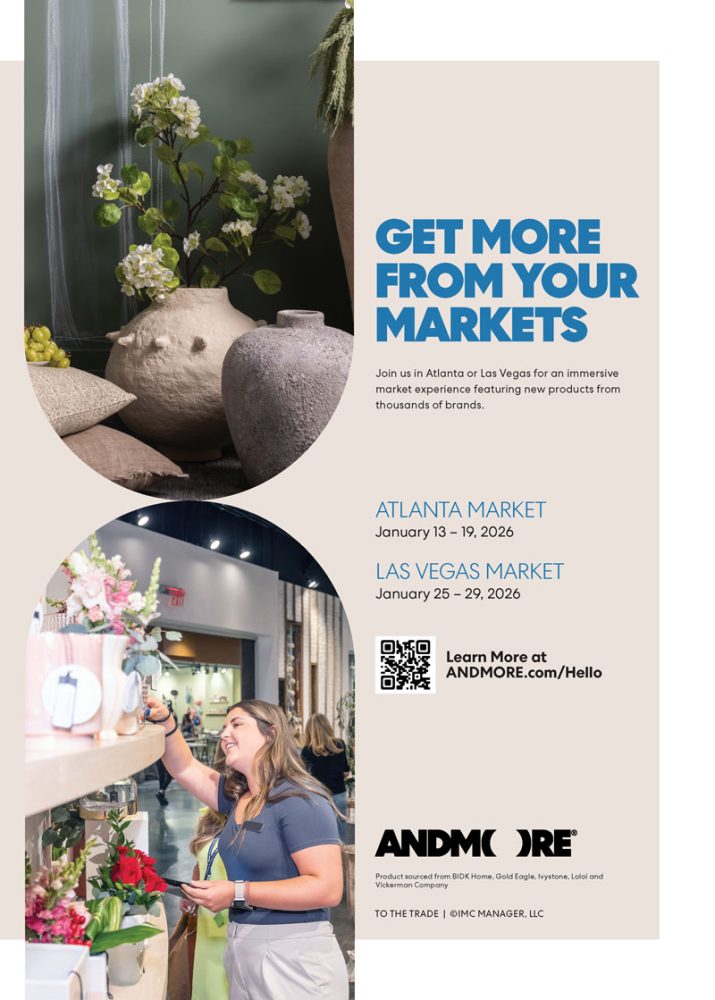Olivia Rivas connects her sustainable values with an aesthetic that reflects the unique beauty of Northern California.
Who:Olivia Rivas, owner and lead designer.
What: Papillon is committed to sustainable practices in floral design for our weddings and bouquet delivery business. Our promise is to refrain from using floral foam and disposable plastic in our containers, accessories or mechanics, and significantly reducing flowers and plants that cannot be composted because of harmful pesticides.
Where: Santa Rosa, Calif. (Sonoma County)
Social media: papillonsonoma.com, @papillonfloral
About: I started Papillon with no prior experience in flowers other than arranging them for friend’s parties. In 2011, I embarked on my professional education journey, taking workshops with the designers I followed, including Ariella Chezar and Sarah Ryhanen and Nicolette Owen of Little Flower School. After that, I sort of jumped right in without working at a traditional florist or really knowing how to conduct a floral business. In hindsight, if I had worked a season at a more traditional florist at the beginning, I would have found out more about timesaving techniques and contracts.
I designed my first weddings in 2012 and decided that selling bouquets online would complement my wedding business. In November 2018, we opened our first retail pop-up, and in June 2019, we opened our first full-service retail storefront in Santa Rosa. Now, I’ve been able to work on smaller, more intimate weddings, and our main focus now is delivering fresh flowers and bouquets in our loose, romantic garden style while also providing our community with local natural products and gifts.
Square footage: 900 square feet
Services/Specialties: We feature local artisan jewelry, ceramic designs and specialty products for our front-of-store retail operation, including natural beauty and bath, natural home and cleaning supplies, plants, and garden materials. We also carry a section of single-stem fresh flowers, dried flowers and foliage for on-the-spot arranging for customers. Daily bouquet orders are also made for delivery. We strive to carry products in recyclable containers and use as little plastic as we can.
Seasonal sourcing: Living in California is expensive, but when it comes to our proximity to fresh local produce and flowers, I can’t complain. Every season brings new flower farms bursting with new beauties. We source all items as sustainably as possible. During flower season, we use only local farms, local growers and seasonal flowers. I’m also so excited about the local flower markets that have been created within the past two years. Sonoma Flower Mart has been consistent with sourcing from local farms within our area. It was the brainchild of the awesome duo, Nichole Skalski and Kathrin Green, from California Sister Floral Design & Supply, and is now run by Jessica Hole. Jessica has relationships with Front Porch Farm, Neve Bros., Bees and Blooms, B-Side Farm, Oak Hill of Sonoma, Full Bloom and many others from the North Bay Flower Collective. Point West Flower Market is the newest local venue that helps keep me from driving to San Francisco for flowers. Sequoia Floral is not new; it’s been in Santa Rosa for at least 40 years, and it’s my go-to for materials and supplies.
Off-season sourcing practices: During the winter months, California’s farms continue to supply some fresh and local floral options, including beautiful bulbs, branches, tulips, hellebores and Anemones from Northern, Central and Southern California. If I need to source peonies before they’re available here, I will order them from Washington-state farmers.
How do you market? Our neighborhood is in a historic district of Santa Rosa, the SOFA arts district, with galleries and shops. The district comes with its own set of parties and events that drive people organically to our front door. It also helps to be located on the same street as one of the best restaurants in Sonoma County, The Spinster Sisters.
To continually stay in front of people, we try to post to Instagram every week. Employing people who have an innate ability with social media helps more than I can say. Facebook is fine, and we tend to buy ads when we’re promoting an event or workshop, but Yelp has been the No. 1 driver for finding people who don’t live in our area and need flowers for delivery or for weddings.
How have you adapted to stay-in-place orders? This has been the most insane, extreme and confounding year I’ve ever encountered—in life and in business. The quarantine and shelter-in-place orders have been important and necessary, but it’s also been heartbreaking. I’ve had to lay off all of my employees, and we closed the store for half of March and all of April. We had a very strong Mother’s Day, and now I’ve started to come back to life—although with only one employee: me. With the new challenges of social distancing, wearing masks and trying to maintain no contact, I decided to move everything online. The process of getting everything I sell—soap, jewelry, plants, vases, stationery and now masks—loaded onto my website has been time consuming and tedious, but I truly believe that this is the world now. A florist can still be unique, based on what you offer and how you present it, and I decided that if I’m going to survive this, I have to have a specific curated shopping experience ready.
Advice for others who want to adopt the Slow Flowers mission? I can’t say enough about the importance of using local flowers in our shop. We live in a world where you can buy tulips anytime, but I believe using flowers out of season takes away their “specialness.” I also encourage people to use less harmful materials when conducting their flower businesses. It may take a little more time at first, but the results will make you personally healthier and help you do a small part for our future. I urge people to visit the @nofloralfoam page on Instagram for more information and for how-to instruction on no-foam mechanics.























